 EDITOR'S PICK
EDITOR'S PICK
Big Tech Wants Nuclear-Powered AI Now, But Here's What They're Not Telling Us
30 Jul 2025 | Synopsis
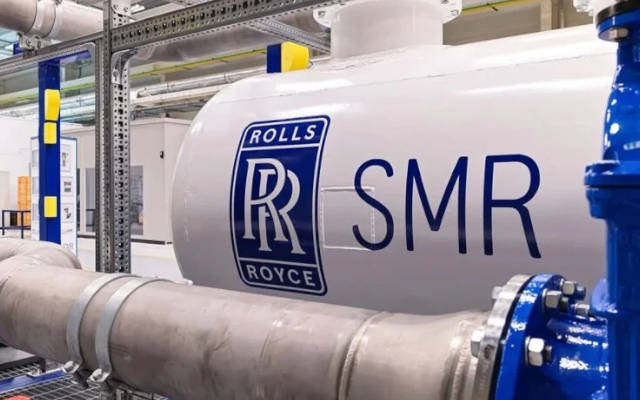 To power US data centers with the tech would require a large-scale, all-hands-on-deck deployment of (currently non-existent) SMRs in every corner of the grid. That means a flood of funding, the use of legacy reactors in the meantime (hopefully without any accidents), and a lot of luck. In the meantime, the explosive growth in data centers will create distress for local residents, as well as the planet.
To power US data centers with the tech would require a large-scale, all-hands-on-deck deployment of (currently non-existent) SMRs in every corner of the grid. That means a flood of funding, the use of legacy reactors in the meantime (hopefully without any accidents), and a lot of luck. In the meantime, the explosive growth in data centers will create distress for local residents, as well as the planet. A Tiny 29-Pound Electric Motor Just Beat Everyone in Power Density
30 Jul 2025 | Synopsis
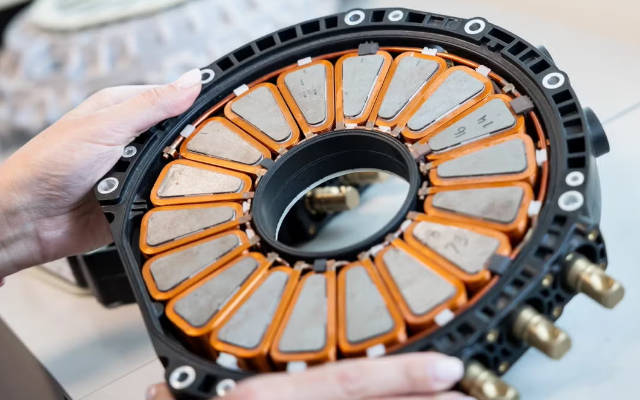 Yasa, a UK-based engineering firm under Mercedes-Benz, has created a breakthrough prototype electric motor weighing just 28.8 lb and generating 737.5 hp - setting a new benchmark for power density at roughly 42 W/kg. While Koenigsegg's Dark Matter motor delivers 800 hp, it is significantly heavier. Yasa's design avoids exotic materials, enabling scalable production of up to 50,000 units annually.
Yasa, a UK-based engineering firm under Mercedes-Benz, has created a breakthrough prototype electric motor weighing just 28.8 lb and generating 737.5 hp - setting a new benchmark for power density at roughly 42 W/kg. While Koenigsegg's Dark Matter motor delivers 800 hp, it is significantly heavier. Yasa's design avoids exotic materials, enabling scalable production of up to 50,000 units annually.Elysian E9X: Europe's 90-Seat Electric Aircraft Targets 2033 Entry
30 Jul 2025 | Synopsis
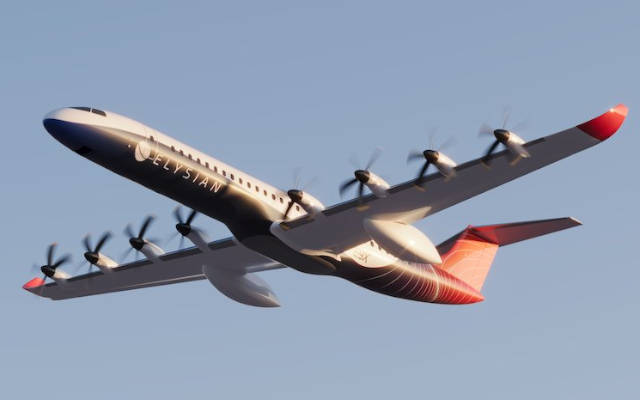 Dutch startup Elysian Aircraft is developing the E9X, a 90-seat fully electric aircraft with a 500-mile range, targeting entry into service by 2033. Featuring eight wing-mounted propellers and battery integration, the E9X aims to offer zero-emission short-haul flights. Backed by TU Delft, KLM, and Aernnova, the project addresses major engineering hurdles and is entering detailed design. A prototype is expected by 2030, with total development costs projected at $10 billion."
Dutch startup Elysian Aircraft is developing the E9X, a 90-seat fully electric aircraft with a 500-mile range, targeting entry into service by 2033. Featuring eight wing-mounted propellers and battery integration, the E9X aims to offer zero-emission short-haul flights. Backed by TU Delft, KLM, and Aernnova, the project addresses major engineering hurdles and is entering detailed design. A prototype is expected by 2030, with total development costs projected at $10 billion."Second‑Life Honda & Nissan EV Packs Power 24 MWh Texas Grid Storage
29 Jul 2025 | Synopsis
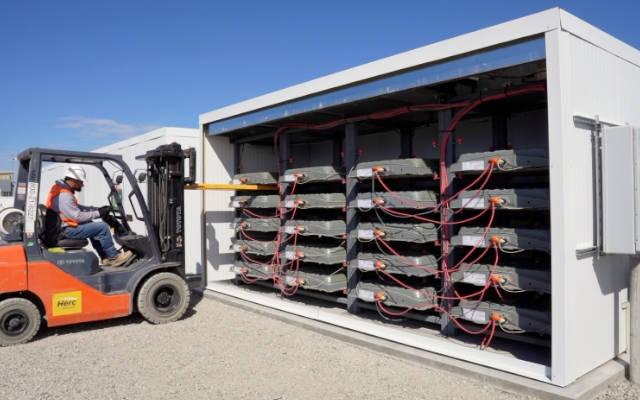 California‑based B2U Storage Solutions is building a 24 MWh energy storage facility east of San Antonio using ~500 second‑life EV battery packs - sourced from retired Honda and Nissan electric vehicles previously deployed in its California system. Their UL‑certified modular "plug‑and‑play" EPS system skips costly refurbishing and uses AI to manage trading into CPS Energy's grid. Texas is one of four planned sites totaling 100 MWh by mid‑2026.
California‑based B2U Storage Solutions is building a 24 MWh energy storage facility east of San Antonio using ~500 second‑life EV battery packs - sourced from retired Honda and Nissan electric vehicles previously deployed in its California system. Their UL‑certified modular "plug‑and‑play" EPS system skips costly refurbishing and uses AI to manage trading into CPS Energy's grid. Texas is one of four planned sites totaling 100 MWh by mid‑2026.Lucid Air: 72,000 Miles, $0 Maintenance vs. $4,850 on a Corvette C8
29 Jul 2025 | Synopsis
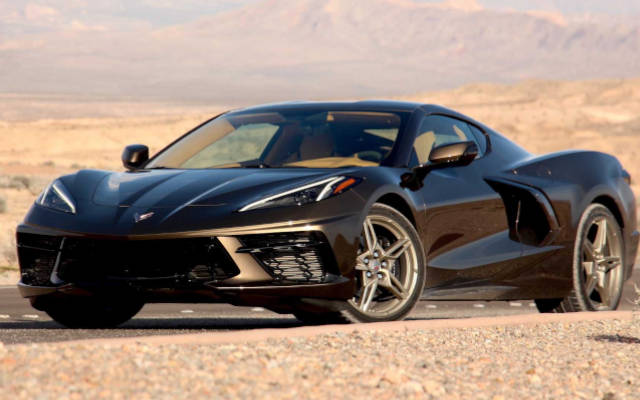 A Lucid Air owner reports driving 72,000 miles with zero maintenance expenses—only new tires at 70K miles due to accidental damage. In contrast, maintaining a 2020 Corvette C8 over the same distance would cost approximately $4,850 for oil changes, transmission service, and tires. The post highlights the time and cost advantages of an EV over a gas-powered muscle car.
A Lucid Air owner reports driving 72,000 miles with zero maintenance expenses—only new tires at 70K miles due to accidental damage. In contrast, maintaining a 2020 Corvette C8 over the same distance would cost approximately $4,850 for oil changes, transmission service, and tires. The post highlights the time and cost advantages of an EV over a gas-powered muscle car.
 Si Exclusive
Si Exclusive
Hydrogen's Flight Path: Fuel Cells, Turbines, and the Economics of Clean Aviation
10 Oct 2025 |  Aviation is shifting from Jet A to four fuel systems: electricity, hydrogen (fuel cell and combustion), SAF, and petroleum. Fuel cells suit short-haul aircraft; hydrogen combustion may power long-range jets. SAF bridges legacy fleets. Hydrogen costs - $5-$7/kg today, possibly $2/kg by 2040 - impact ticket prices and infrastructure decisions. Airport authorities, airlines, and governments will share deployment costs. Each fuel has distinct environmental pros and cons shaping aviation's net-zero future.
Aviation is shifting from Jet A to four fuel systems: electricity, hydrogen (fuel cell and combustion), SAF, and petroleum. Fuel cells suit short-haul aircraft; hydrogen combustion may power long-range jets. SAF bridges legacy fleets. Hydrogen costs - $5-$7/kg today, possibly $2/kg by 2040 - impact ticket prices and infrastructure decisions. Airport authorities, airlines, and governments will share deployment costs. Each fuel has distinct environmental pros and cons shaping aviation's net-zero future.
 11 Oct 2025 00:27:56 UTC |
RECENT PODCASTS
BYD Soars - Cheaper Tesla Models - The Bolt is Back - Rivian
SEARCH RSSTREAM
 53 New Postings In Past 24 Hours
53 New Postings In Past 24 Hours
Category:finance
Region:NoAmerica
Date:10 Oct 2025
Category:policy
Region:NoAmerica
Date:10 Oct 2025
Category:mobility
Region:AsiaPacific
Date:10 Oct 2025
Category:mobility
Region:AsiaPacific
Date:10 Oct 2025
Category:finance
Region:NoAmerica
Date:10 Oct 2025
Category:finance
Region:IndoAsia
Date:10 Oct 2025
Category:energy
Region:Global
Date:10 Oct 2025
Category:energy
Region:NoAmerica
Date:10 Oct 2025
Category:finance
Region:NoAmerica
Date:10 Oct 2025
Category:finance
Region:Global
Date:10 Oct 2025